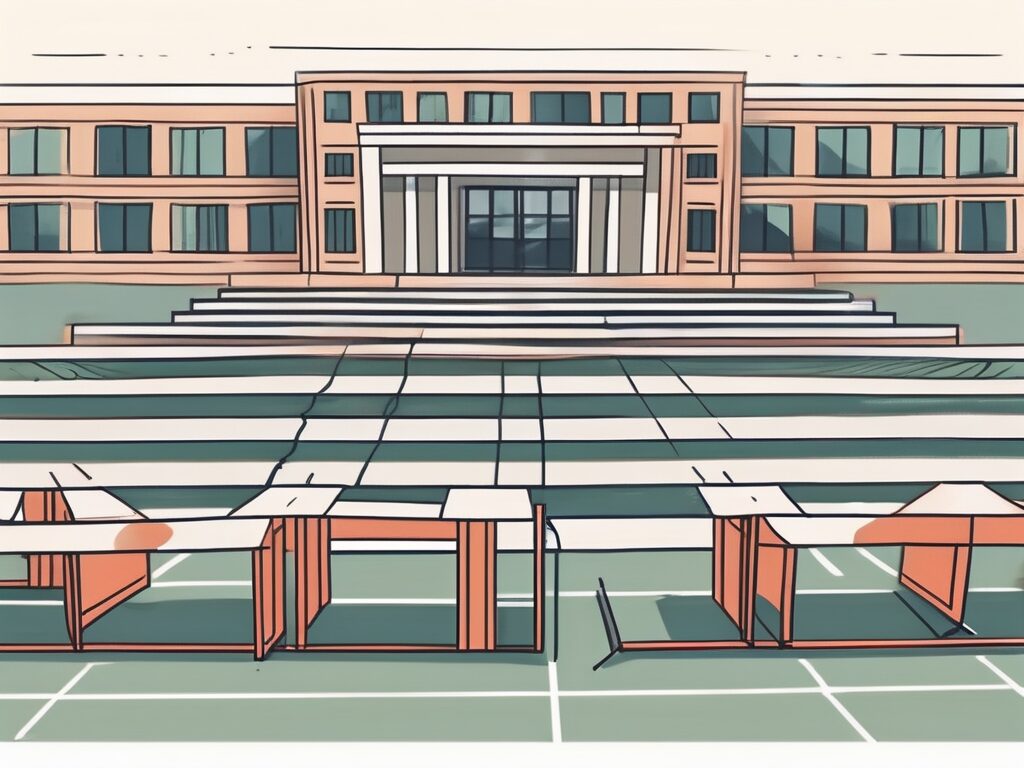South Korea, often hailed as an educational powerhouse, has a reputation for academic excellence. However, like any other system, it’s not without its challenges. This article delves into the barriers to education in South Korea, exploring the various factors that can hinder the progress of learners in this East Asian nation.
The Pressure Cooker Education System
The South Korean education system is often likened to a pressure cooker – intense, relentless, and unforgiving. Students are under constant pressure to perform well in their studies, with a heavy emphasis placed on examination results. This high-stakes environment can lead to stress, anxiety, and other mental health issues, posing a significant barrier to effective learning.
Furthermore, the pressure to excel acadically often comes at the expense of other important aspects of a child’s development. For instance, the focus on academic achievement may overshadow the importance of physical activity, creative pursuits, and social interaction. As a result, students may miss out on a well-rounded education.
Socioeconomic Disparities
While South Korea’s education system is generally considered to be equitable, socioeconomic disparities can still pose barriers to education. Children from low-income families may struggle to afford the high costs of private tutoring, which is commonplace in South Korea. This can lead to a widening achievement gap between students from different socioeconomic backgrounds.
Moreover, the high cost of education can also put a strain on families, leading to financial stress. This can, in turn, impact a child’s ability to concentrate on their studies, further exacerbating educational inequalities.
Insufficient Support for Special Needs Education
Another barrier to education in South Korea is the lack of adequate support for special needs education. Despite efforts to improve inclusivity, the education system still falls short in catering to the needs of students with disabilities. This can lead to these students feeling isolated and unsupported, hindering their educational progress.
Moreover, the stigma associated with disabilities can also pose a barrier to education. This can lead to discrimination and exclusion, further marginalising students with disabilities and preventing them from reaching their full potential.
The Rigid Curriculum
The South Korean education system is known for its rigid curriculum, which leaves little room for creativity and independent thinking. This can stifle students’ natural curiosity and hinder their ability to think critically and solve problems creatively – skills that are increasingly important in today’s fast-paced, ever-changing world.
Furthermore, the focus on rote learning can lead to a lack of deep understanding and application of knowledge. This can hinder students’ ability to apply what they’ve learned in real-world situations, limiting their ability to adapt and thrive in the workforce.
Language Barriers
For non-native speakers, language can pose a significant barrier to education in South Korea. While efforts have been made to improve English language instruction, many students still struggle with English proficiency. This can hinder their ability to access educational resources, participate in class discussions, and perform well in examinations.
Moreover, the focus on English language learning can also come at the expense of other subjects, leading to an imbalance in students’ educational experiences. This can hinder their overall academic progress and limit their opportunities for further study or employment.
Conclusion
While South Korea’s education system has many strengths, it’s clear that there are also significant barriers to education. From the intense pressure cooker environment to socioeconomic disparities, insufficient support for special needs education, a rigid curriculum, and language barriers, these challenges can hinder the progress of learners and prevent them from reaching their full potential.
Addressing these barriers is crucial for ensuring that all students in South Korea have the opportunity to receive a quality education. This requires a comprehensive approach that includes policy reforms, increased funding for education, improved support for special needs education, and a shift towards a more balanced and inclusive curriculum.
Empower Your Teaching Career with IPGCE
Understanding the barriers to education is just the first step; taking action to overcome them is next. If you’re an educator facing the challenges of qualification requirements, career progression, professional isolation, or adapting to global education systems, IPGCE is your gateway to advancement. Join the UK’s #1 Teacher Training Course, the International Postgraduate Certificate in Education, and experience a transformation in your professional journey. With our program, you’ll enhance your qualifications, connect with a global network of educators, and gain invaluable insights into international curricula—all through a flexible online study format that fits your busy schedule. Don’t let barriers hold you back. Join IPGCE today and unlock your full potential as an educator.

